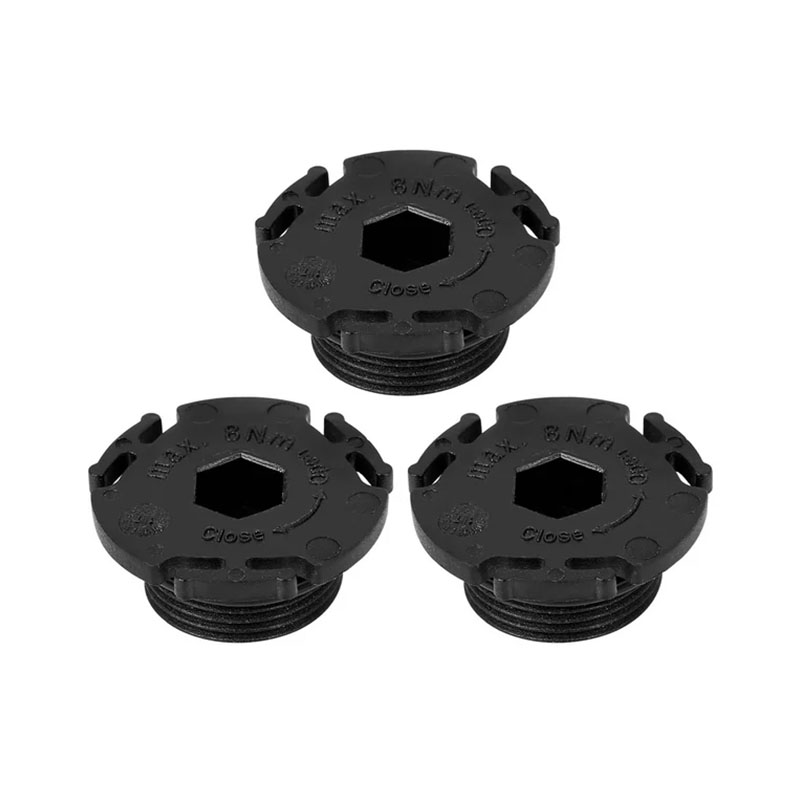flat fiberglass gasket
Understanding Flat Fiberglass Gaskets Properties, Uses, and Benefits
Flat fiberglass gaskets are essential components used in various industrial applications, known for their durability, flexibility, and resistance to extreme temperatures and pressures. Made from woven fiberglass material and often coated with rubber or other polymers, these gaskets provide a reliable seal that minimizes leaks and enhances the efficiency of mechanical systems.
What is a Flat Fiberglass Gasket?
A flat fiberglass gasket is a sealing component designed to fit between two surfaces to prevent the escape of fluids or gases. The primary material, fiberglass, is renowned for its strength and resistance to high temperatures and chemical exposure. When combined with elastomers like silicone, nitrile, or neoprene, the resulting gasket possesses excellent sealing properties while maintaining high tensile strength.
Key Properties
1. Temperature Resistance One of the standout features of flat fiberglass gaskets is their ability to withstand extreme temperatures. They can operate effectively in environments ranging from -40°F to over 600°F, making them suitable for both hot and cold applications.
2. Chemical Resistance The fiberglass composition, often treated to resist various chemicals, allows these gaskets to be used in environments exposed to oils, fuels, acids, and other aggressive substances. This makes them ideal for use in automotive, chemical processing, and oil and gas industries.
3. Dimensional Stability Flat fiberglass gaskets retain their shape and dimensions under stress. This property ensures a consistent seal over time, reducing the need for frequent replacements and maintenance.
4. Low Compressibility Even under high pressure, fiberglass gaskets maintain low compressibility. This feature is crucial for applications where maintaining a tight seal is essential for operational efficiency.
Applications
Flat fiberglass gaskets are utilized across various industries due to their reliability and versatility
. Key applications includeflat fiberglass gasket

- Automotive Industry In automotive engines and exhaust systems, these gaskets provide exceptional sealing, ensuring that exhaust gases and fluids remain contained within system boundaries.
- Chemical Processing The chemical resistance of fiberglass gaskets makes them suitable for tanks, pipes, and valves that handle corrosive materials.
- Aerospace The aerospace sector relies on these gaskets for their lightweight yet durable properties, essential for maintaining strict safety standards.
- Energy Sector In power generation and oil refining, flat fiberglass gaskets prevent leaks in high-pressure systems, contributing to operational safety and efficiency.
Benefits
The use of flat fiberglass gaskets offers several advantages
- Cost-Effective Due to their longevity and durability, these gaskets provide a cost-effective sealing solution that minimizes replacements and maintenance efforts.
- Enhanced Performance By ensuring minimal leakage, fiberglass gaskets enhance the performance of machinery and systems, reducing waste and increasing overall efficiency.
- Customizability Flat fiberglass gaskets can be manufactured to specific dimensions and thicknesses, allowing for tailored solutions in diverse applications.
Conclusion
In summary, flat fiberglass gaskets play a crucial role in industrial applications by providing a robust and reliable sealing solution. Their excellent temperature and chemical resistance, along with their ability to maintain dimensional stability under pressure, make them an ideal choice for critical applications in automotive, aerospace, chemical processing, and energy sectors. Investing in high-quality fiberglass gaskets ensures enhanced performance while minimizing risks associated with leaks and failures, thereby supporting overall operational efficiency.
-
Understanding the Front Main Engine Seal: Purpose, Maintenance, and Installation
News Jul.29,2025
-
Understanding O-Rings and Seal Rings: Types, Applications, and Custom Solutions
News Jul.29,2025
-
Understanding Crankshaft Oil Seals: Rear Seals, Pulley Seals, and Their Role in Engine Integrity
News Jul.29,2025
-
The Importance of Front and Rear Crankshaft Seals in Engine Performance and Oil Management
News Jul.29,2025
-
Crank Oil Seals: Functions, Types, and Cost Considerations in Engine Maintenance
News Jul.29,2025
-
A Comprehensive Guide to O-Rings and Seals: Types, Materials, and Global Applications
News Jul.29,2025
-
Mastering Diesel and Performance Engine Maintenance: A Guide to Critical Oil Gaskets
News Jul.28,2025
Products categories















